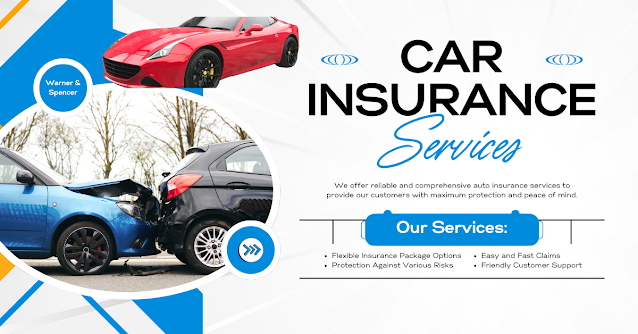Introduction
Choosing the best car insurance can be a daunting task. With so many options available, it’s easy to feel overwhelmed. But don’t worry—this guide will help you navigate the complexities of car insurance, ensuring you make an informed decision. Car insurance is not just a legal requirement but also a financial safety net that protects you and your vehicle in case of accidents, theft, or other unforeseen events.
Types of Car Insurance
Liability Insurance
What It Covers
Liability insurance is the most basic form of car insurance, covering damages you cause to others in an accident. This includes bodily injury and property damage. It’s essential because it protects you from financial loss if you’re at fault in an accident.
Who Needs It
Every driver needs liability insurance, as it’s mandatory in most states. It’s the minimum coverage required by law, ensuring that you’re financially responsible for any harm you cause on the road.

Which Insurance Is Best for Your Car? A Comprehensive Guide
Collision Insurance
Coverage Details
Collision insurance covers damage to your vehicle resulting from a collision with another car or object, such as a tree or guardrail. It doesn’t matter who’s at fault; this insurance will help repair or replace your car.
When to Consider It
If you have a newer or more expensive car, collision insurance is a wise choice. It ensures that you’re not left footing a hefty repair bill or replacing your car out-of-pocket if it’s totaled.
Comprehensive Insurance
What Is Included
Comprehensive insurance covers a wide range of incidents, including theft, vandalism, natural disasters, and animal collisions. It’s designed to protect your car from non-collision-related damages.
Benefits of Comprehensive Coverage
This type of insurance is particularly beneficial if you live in an area prone to natural disasters or high crime rates. It provides peace of mind knowing that your vehicle is protected from various risks beyond just accidents.
Personal Injury Protection (PIP)
What It Covers
PIP, also known as no-fault insurance, covers medical expenses and lost wages for you and your passengers, regardless of who is at fault in an accident.
States That Require PIP
Not all states require PIP, but it’s mandatory in no-fault states like Florida and New York. Even if it’s not required, having PIP can be advantageous for covering unexpected medical costs after an accident.
Uninsured/Underinsured Motorist Coverage
Importance and Benefits
This coverage protects you if you’re involved in an accident with a driver who has little or no insurance. It covers medical expenses, lost wages, and other damages.
When It’s Essential
Given the number of uninsured drivers on the road, having this coverage is crucial. It ensures you’re not left with significant expenses if the other driver can’t cover the costs.
Factors to Consider When Choosing Car Insurance
Coverage Needs
Assessing Personal Needs
Evaluate what you need based on your driving habits, vehicle value, and personal circumstances. Do you drive frequently in high-traffic areas, or is your car parked most of the time? Your needs will vary accordingly.
Legal Requirements
Understand the minimum insurance requirements in your state. While meeting these requirements is essential, it’s often advisable to get additional coverage for better protection.
Budget and Affordability
Balancing Cost and Coverage
Determine how much you can afford to spend on insurance without compromising necessary coverage. Sometimes, paying a bit more for comprehensive coverage can save you from substantial out-of-pocket expenses later.
Discounts and Savings
Look for discounts such as multi-policy, safe driver, or student discounts. Many insurance companies offer various ways to save on premiums.
Company Reputation
Customer Service
Research the insurance company’s reputation for customer service. Read reviews and ask for recommendations to ensure they handle claims efficiently and support their customers.
Claims Process Efficiency
A company with a streamlined claims process can make a significant difference when you’re in an accident. Quick and fair claims handling should be a top priority.
Policy Flexibility
Customization Options
Choose an insurance provider that allows you to customize your policy. Whether it’s adding roadside assistance, rental car coverage, or other riders, flexibility is crucial.
Add-ons and Riders
Consider additional coverages that can enhance your policy, such as gap insurance, which covers the difference between your car’s value and the amount you owe on it, or rental reimbursement.
Comparing Top Car Insurance Companies
Geico
Pros and Cons
Geico is known for its competitive rates and extensive discounts. However, some customers have reported less than stellar customer service experiences.
State Farm
Pros and Cons
State Farm offers robust customer service and a vast network of agents. On the downside, their premiums can be higher than some competitors.
Progressive
Pros and Cons
Progressive is praised for its innovative tools like the Name Your Price tool, which helps you find a policy within your budget. Yet, their customer service ratings are mixed.
Allstate
Pros and Cons
Allstate provides a wide range of coverage options and strong customer service. However, they may not be the cheapest option available.
USAA
Pros and Cons
USAA is renowned for its exceptional customer service and affordable rates, but it’s only available to military members and their families.

Which Insurance Is Best for Your Car
Conclusion
Choosing the best car insurance depends on various factors, including your coverage needs, budget, and the insurance company’s reputation. By understanding the different types of car insurance and what each offers, you can make an informed decision that provides the best protection for you and your vehicle. Remember, the cheapest option isn’t always the best; comprehensive coverage and excellent customer service can save you from headaches and financial strain in the long run.
Learn More About: Can Insurance Companies Deny Coverage?
Next Post



0 Comments